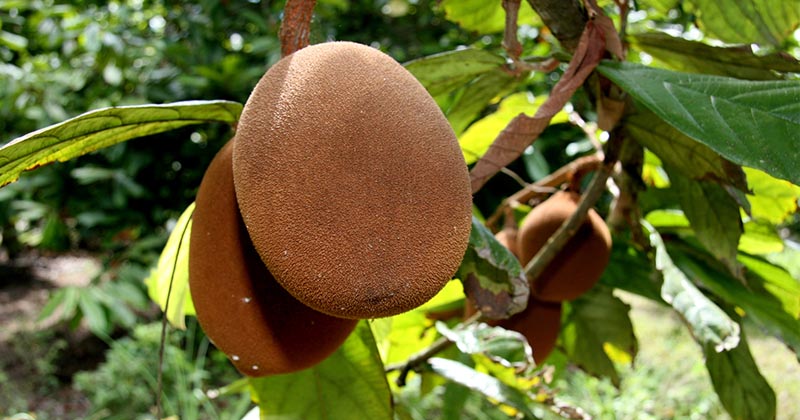We now know that the trillions of bacteria in our digestive tract – aka the gut microbiome – have a huge impact on our health. A balanced gut microbiome is crucial for immunity, energy levels, maintaining a healthy weight and even regulating mood.
A lot of people turn to probiotics for gut health. But there are also many herbs and superfoods which help kill off the “bad” bacteria and feed the “good” bacteria so your gut microbiome stays balanced.
In addition to balancing gut bacteria, these herbs for gut health have other health benefits too, like fighting inflammation or providing your body with essential nutrients. As an added bonus, they are often cheaper than probiotics and have longer shelf lives (don’t be surprised if the healthy bacteria in your probiotic supplement is dead!). Here are the top herbal supplements for gut health and how they work.
1. Atractylodes Root
Known as baizhu in Chinese, Atractylodes root has been used medicinally for centuries. The health benefits of Atractylodes have been widely studied and more than 200 compounds have been isolated from the plant.
Atractylodes helps gut health in numerous ways. Polysaccharides from Atractylodes regulate the production and release of GI hormones. Some of these hormones also directly act on gut flora, helping to block harmful bacteria and increase health bacteria. Other hormones stimulate small intestinal motility, which help bowel movements and eliminating pathogenic gut bacteria.
The hormones also trigger the release of growth factors which repair the gut’s mucosal lining. This, combined with Atractylodes strong anti-inflammatory properties, make it a promising treatment for GI disorders including leaky gut, IBS and IBD. (1, 2, 3)
Read more about Atractylodes benefits here
2. Shilajit
While technically not an herb, Shilajit is one of the best natural remedies for gut dysbiosis. It is a resin-like substance which oozes out of rocks at high elevations, is one of the best sources of humic acids, including fulvic acid. Fulvic acid is known to influence at least 10 genera of gut bacteria. In particular, it increases Variovorax, Lactococcus, and Lactobacillus and decreases Serratia and Acinetobacter bacteria. This can lead to a more balanced gut flora composition.
Most studies were done on animals but there have been human studies on shilajit’s benefits for gut health. One such study concluded that humic acids like shilajit “have a profound effect on healthy colonic microbiome and may be potentially interesting substances for the development of drugs that control the innate colonic microbiome.”
In addition to balancing gut flora, shilajit also increases the mucus barrier in the stomach. This makes it a natural treatment for ulcers and a possible treatment for leaky gut. (4, 5)
Also read
3. Proanthocyanidins
Proanthocyanidins are a type of antioxidant which is known for its benefits for gut health. They act like prebiotics in the body, helping to feed probiotic bacteria in the intestinal tract. Various studies show that proanthocyanidins improve the diversity of intestinal bacteria, as well as improve intestinal permeability.
There are many sources of proanthocyanidins, including grape seeds and blueberries. The Amazonian plant capuacu is also a good source of proanthocyanidins. (6, 7, 8, 9)
4. Turkey Tail Mushroom
Turkey tail mushroom contains a variety of nutrients, including a protein-bound polysaccharide called polysaccharopeptide (PSP). While PSP is best known for its cancer-fighting benefits, it also helps balance gut flora to reverse gut dysbiosis.
It is thought to work by acting as a prebiotic. Numerous studies show that taking polysaccharopeptide-rich mushrooms increases probiotic bacteria in the gut, thus helping balance the gut flora. Benefits include improved immunity and obesity.
As an added plus, turkey tail is widely available and thus one of the most affordable medicinal mushrooms you can buy. (10, 11, 12, 13)
Read more about turkey tail mushroom and how to choose turkey tail supplements.
5. Coptis Root
Coptis root is well known as a natural remedy for GI disorders like IBS, IBD and leaky gut. It contains numerous alkaloids, including berberine, pamatine, coptisine, jatrorrhizine, and columbamine. These alkaloids act directly on the GI tract, reducing inflammation and helping to balance gut flora.
Coptis root also indirectly helps to balance gut flora by acting as a choleretics: a substance which stimulates bile production. Bile is incredibly important for the gut microbiome because it kills the “bad” bacteria in the GI tract. (14, 15, 16)
There are also many other herbs which can increase bile production, such as Phyllanthus niruri and elecampane.
Also read: Best Bile Supplements
6. Slippery Elm Bark
Slippery elm is another plant which acts as a prebiotic to help balance gut flora. It also contains a gel-like substance called mucilage. When consumed, the mucilage coats the GI tract. This helps protect the intestinal wall from damage and also aids in healing leaky gut. In addition to these important benefits, slippery elm bark also reduces inflammation in the GI tract. (17, 18)
Read more about slippery elm bark benefits here.





